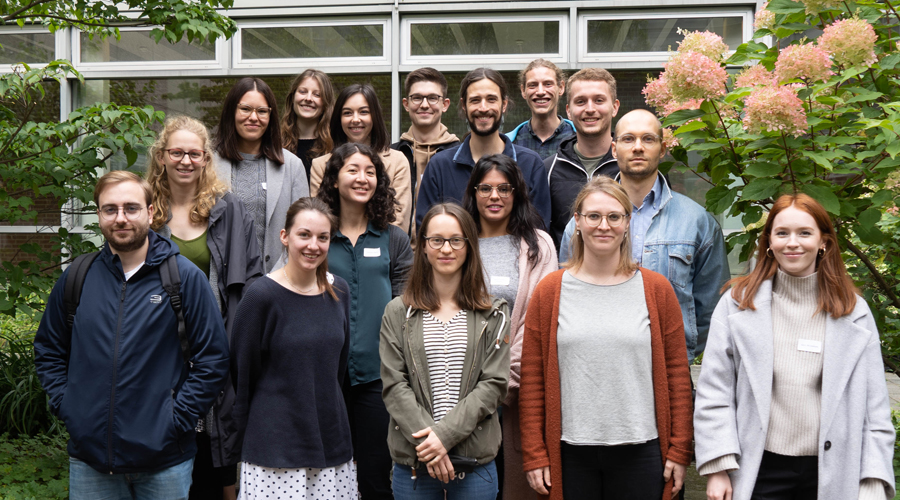The first students have started the new Master’s programme, which was created as part of RESIST and PLRI.
The Corona pandemic has made it clear to us: In medicine, it is becoming increasingly important to be able to handle large amounts of data safely. That is why Hannover Medical School (MHH) is now training experts in this field with the new Master’s programme “Biomedical Data Analysis”. The course was developed as part of RESIST with significant participation by the Peter L. Reichertz Institute for Medical Informatics (PLRI) of the MHH and the TU Braunschweig.
The first 18 students have now started their studies. They are graduates of a life science bachelor’s degree or a medical degree. In the coming four semesters, they will learn to generate and handle large, heterogeneous and complex amounts of data in a targeted manner and to develop and apply IT solutions. This knowledge is intended to optimise the prevention of diseases, precise diagnoses as well as treatment and therapy decisions.
“We are pleased to now be able to start the study programme together with you,” said RESIST-speaker Prof. Dr. Thomas Schulz, head of the MHH Institute of Virology, at the opening ceremony on 7 October. He is the spokesperson for the new degree programme, together with Prof. Dr. Dr. Michael Marschollek, Managing Director of the PLRI. The lecturers of the PLRI are substantially involved in the teaching of the study programme.
The right study programme in the right place at the right time
“The MHH is a very good place to combine the best of computer science with the best of medicine,” emphasised Björn Thümler, Lower Saxony’s Minister for Science and Culture, who had prepared a video message for the ceremony. MHH President Prof. Dr. Michael P. Manns, who introduced the MHH to the students at this ceremony, underlined this statement: “It’s the right degree programme in the right place at the right time.”
MHH Dean of Studies Prof. Dr. Ingo Just pointed out that the students have a medical or a natural science background and that the study programme thus prepares them very well for interprofessional teamwork. “To work together cooperatively, productively and harmoniously, you have to learn how the other person thinks,” he said.
“Digitalisation will turn medicine upside down,” Prof. Dr. Rudi Balling described. The director of the “Luxembourg Centre for Systems Biomedicine” at the University of Luxembourg addressed “tricky problems” in his keynote speech – problems with many components and interactions, a high degree of interconnection, networking and feedback. With his words “For these problems, for example pandemics, climate change and racism, there are no clear-cut but only participative solutions – and the basis of these solutions is data”, he emphasised the importance of the new degree programme.
Further information on this Master’s programme is available online at www.mhh.de/master-biomeddat and also from the coordinator of the Biomedical Data Science study programme: Dr. Melina Celik, phone: 0511 532-5700, master.biomeddat@mh-hannover.de.
The photo shows the first students of the new Master’s programme “Biomedical Data Science”. (Copyright: “Mareike Heger/MHH”)

